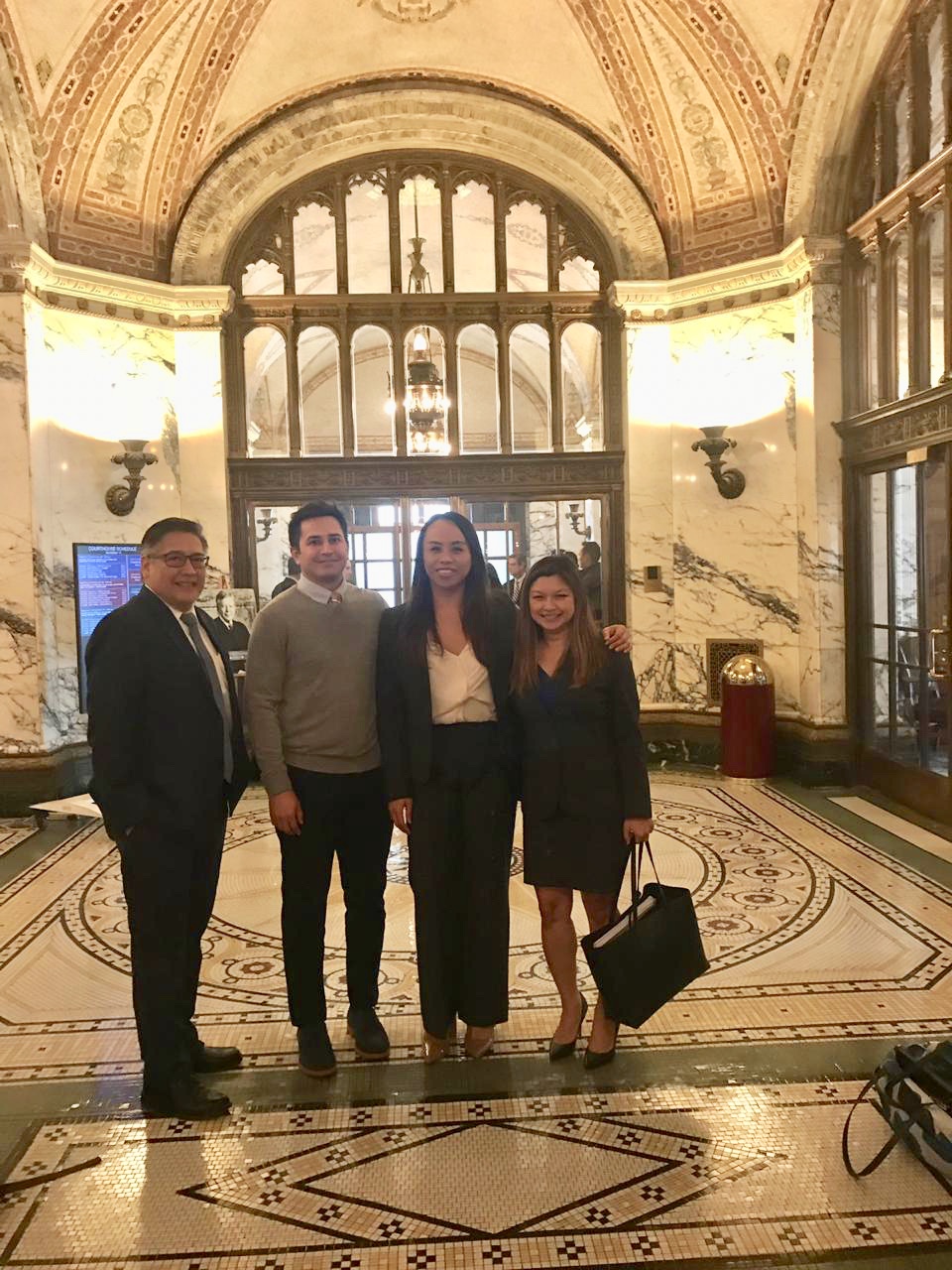CFJ's Genevieve Rapadas was at the Ninth Circuit Court of Appeals in San Francisco on November 15, 2018 to present arguments on behalf of the Guam International Airport Authority (GIAA) in a case brought by Vicente Crawford seeking compensation for the Airport's use of ancestral lands.
The case before the Ninth Circuit is an appeal of a 2017 decision by Chief Judge Frances Tydingco-Gatewood of the District Court of Guam, who dismissed Crawford's lawsuit that had been filed against the government of Guam, including GIAA. Rapadas, who successfully argued the summary judgment in the lower court, expressed her sympathy for the plaintiff saying that “as a daughter of Guam I empathize with Crawford and the ancestral landowners," but pointed out GIAA's lack of involvement or obligation in the process of potential compensation for the landowners.
The introduction to GIAA's brief to the Ninth Circut summarizes the Airport's position as argued by Rapadas: "Defendants-Appellees Antonio B. Won Pat International Airport Authority, Guam (“GIAA”) and the chairman of its board of directors, Ricardo C. Duenas, are the objects of misplaced ire. Crawford seeks relief for an injury they did not cause and cannot fix. This case concerns land on Guam, legally owned and used by GIAA to operate Guam’s only public airport. Vicente Palacios Crawford’s Opening Brief repeatedly suggests that GIAA is using land that rightfully belongs to him. He claims to seek “just compensation” – a term, when not specifically defined, has its own distinct meaning under the Takings Clause. But Crawford omits critical facts. Crawford’s mother received full just compensation from the United States government for the property in question decades ago. Her 1992 settlement with the United States extinguished any further claims for “just compensation."
GIAA's brief goes on to say, "That is not to say Crawford and others similarly situated do not have a legitimate and significant grievance. For decades, the majority of people in Guam (as reflected in multiple enactments by the Guam Legislature going back to the early 1970s) have believed that federal takings of vast swaths of the island of Guam between 1944 and 1963 were carried out without due process and continue to “adversely affect nearly every family in Guam,” fundamentally and permanently changing the island’s culture and economy for the worse. But Crawford has no federal right to additional money or land. He may not even have a legally protected right to additional money or land under Guam law – which is what the District Court concluded. To the extent he does have rights created by the Guam Legislature to additional compensation from the Guam government, the Guam Legislature clearly chose not give him any right to receive
compensation from GIAA. In this, the Guam Legislature followed an explicit federal prohibition against requiring GIAA to compensate ancestral land claimants. GIAA thus has no land it can legally give to Crawford. GIAA has no money it can legally give to Crawford. And Guam law does not obligate or empower GIAA to ensure that Crawford receives money or land from those who do. Summary judgment was properly granted in favor of GIAA and Chairman Duenas."

